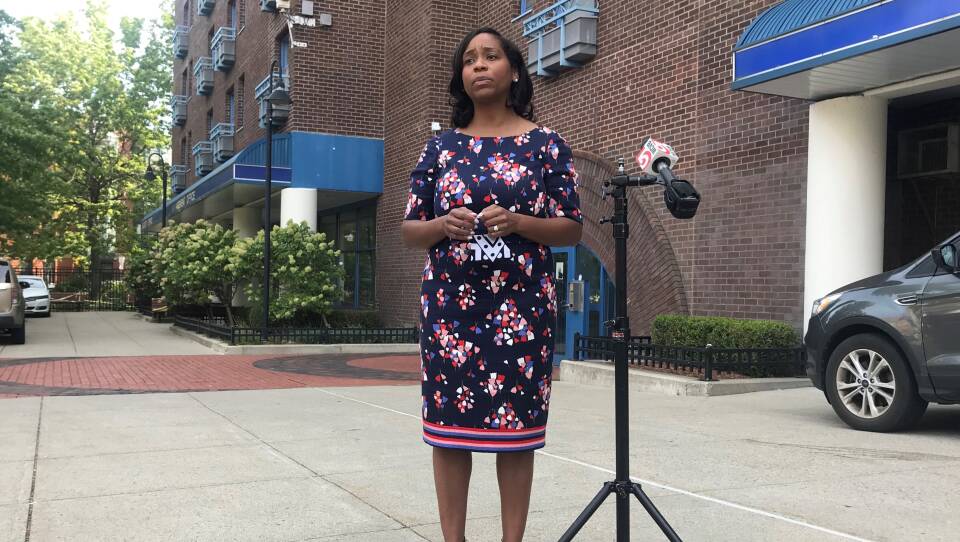Andrea Campbell, a mayoral candidate and the head of the Boston City Council’s public safety committee, is calling for the U.S Attorney’s Office to investigate how the Boston Police Department handled the case of Patrick M. Rose Sr., a former officer and union head now facing dozens of child sexual assault charges.
“I am calling on acting Mayor [Kim' Janey to enlist the U.S. Attorney to conduct a full, independent investigation and calling for the immediate release of the full internal affairs files, including facts of the case and disciplinary action,” Campbell said in a statement Thursday.
The call shows how mayoral campaign politics are playing out in real time, swirling into Boston’s, and the nation’s, renewed focus on policing and police reform.
It also comes two days after Janey, who is also running for mayor, released 14 pages of documents from a 1995 child assault complaint against Rose that occured while he was still on the force.
The documents, a fraction of the more 100-page case file, showed that, once the complaint was substantiated by an internal affairs investigation, the police department’s highest levels of leadership were made aware but did not punish Rose beyond moving him to administrative duty.
Janey, who is now staffing up the city’s new Office of Police Accountability and Transparency, or OPAT, has maintained that the police department abdicated its responsibility in the case. She's asked the new OPAT director, Stephanie Everett, to investigate how BPD handled Rose’s case.
Campbell said the review should not come from the nascent OPAT “but by an agency primed to uncover the truth and deliver accountability.”
Speaking to reporters Thursday, Janey appeared to dismiss the call for the state’s top federal law enforcement agency to look into the case, saying she is “completely confident” in Everett’s ability to lead the review.
Janey also announced that within 45 days of her May 3 start date, Everett will “deliver a plan for review and reform” of the police department’s internal affairs procedures.
Paul F. Evans, the former police commissioner who oversaw the department’s handling of the Rose case, defended himself in a statement after the documents were released, saying that a reluctant witness hamstrung BPD’s attempts to hold Rose accountable.
“The inability to present witness testimony or other admissible evidence resulted in the Boston Police Department’s inability to proceed to a disciplinary hearing due to lack of evidence,” Evans said in the bullet-pointed statement published in The Boston Globe . “The failure to go before a disciplinary hearing prevented the Boston Police Department from taking disciplinary actions against Officer Rose.”
For Janey, that explanation didn’t cut it.
“I will not blame a child," she said Thursday. "I will not blame a victim who has been sexually assaulted. If an officer has been accused of sexually abusing a child and that abuse was [substantiated] by this department and that officer was not terminated, that is indefensible.”
Other mayoral candidates also weighed in Thursday.
John Barros, a former Walsh administration official, called on Janey to release a report detailing all internal affairs investigations that spring from alleged sexual assaults at the hands of police officers
“The fact that Patrick Rose stayed on the force for more than two decades after an internal affairs investigation found that he abused a 12-year-old child raises serious concerns that there is a systemic accountability problem in the Boston Police Department,” Barros said in a statement. “The residents of Boston deserve to know if the decades-long cover up of the accusations against Patrick Rose were a horrendous one-time failure or whether they were part of a systemic pattern of immunity for officers credibly accused of heinous crimes."
"Making sure this never happens again requires transparency," he added.
Janey said all the Rose case documents that the city’s law departments deemed both relevant and appropriately redactable have been released.
This story has been updated to clarify John Barros' comments.





